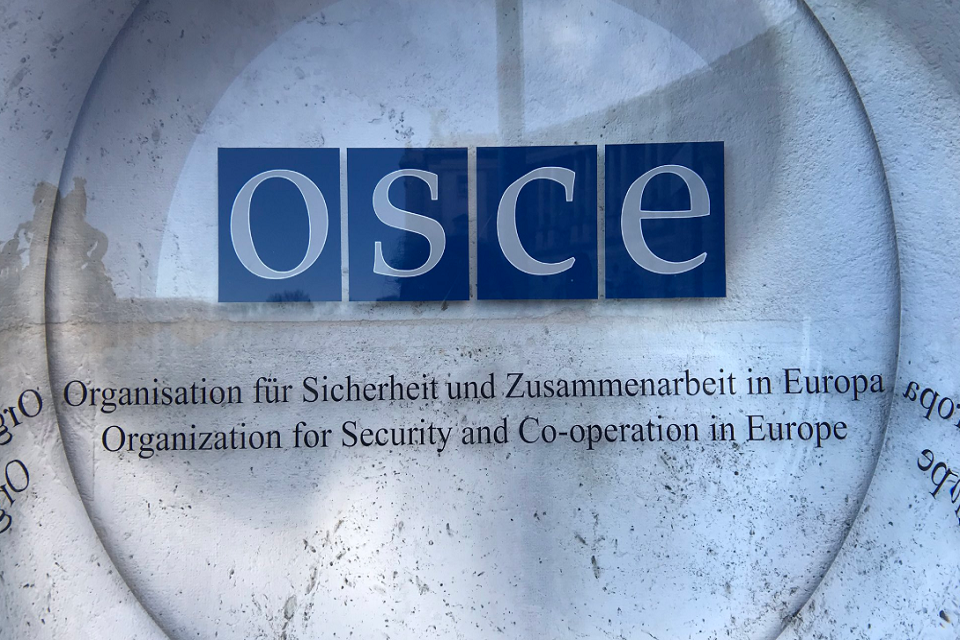Political prisoners in Belarus: UK statement to the OSCE, February 2023
Deputy Ambassador Brown again calls on the Belarusian regime to immediately and unconditionally release all political prisoners and to respect OSCE commitments.

Thank you Mr Chair.
On 8 February, a Belarusian court handed down an eight-year jail sentence to Andrzej Poczobut. Poczobut is a Polish-Belarusian journalist who lives in Belarus and has been imprisoned several times for his work since 2011. The sentencing comes almost two years after he was rearrested and detained on 25 March 2021, his home searched and IT equipment confiscated.
Poczobut is known for his reporting on the anti-Polish nature of Lukashenka’s policies and the treatment of the Polish minority by the Belarusian regime. The approximately 300,000 Poles in Belarus have seen the regime abolish their Polish-language schools, and destroy their cemeteries and memorial sites. Poczobut also reported on the many other human rights violations in Belarus, which those present will sadly be familiar with. In 2021, while he was imprisoned in Belarus, he won Poland’s most prestigious journalism award – Grand Press Journalist of the Year.
And what is Poczobut’s crime according to Belarus? The Belarusian authorities have charged him with “calling for actions that threaten the national security of Belarus” and “incitement to hatred” and placed him on a list of “terrorists”. The UK stands with Poland and others in condemning the sentencing of Andrzej Poczobut. We commend his commitment to the people of Belarus and especially the Polish minority, through his work as a journalist and activist for a marginalised community.
Let me be clear, independent journalism is not a crime. The actions of Belarusian government are at odds with their obligations under international law and their OSCE commitments. OSCE participating States agreed in Budapest in 1994 that “freedom of expression is a fundamental human right and a basic component of a democratic society”. We believe that people must be able to discuss and debate issues freely and challenge their governments. Access to information provided by a strong, robust and independent media allows people to do this. Belarus has once again shown its disregard for these freedoms.
33 media representatives are currently imprisoned in Belarus. The safety of journalists is the key to media freedom. We need to hold to account those who threaten and harm journalists around the world. This is why the work of the OSCE’s Representative on Freedom of the Media is vital – to promote and protect the fundamental freedoms we all committed to as OSCE participating States.
As we raised in the Permanent Council only a few weeks ago, there are over 1,400 political prisoners in Belarus. Hundreds of ordinary people are being brutally punished for protesting the fraudulent 2020 Presidential elections, and many others for speaking out against the war in Ukraine. Journalists, media actors, opposition figures, and human rights defenders sentenced for peacefully exercising their human rights and fundamental freedoms, including freedom of expression and the freedom of peaceful assembly and association. We once again call on the Belarusian regime for their immediate and unconditional release.
Thank you Mr Chair.